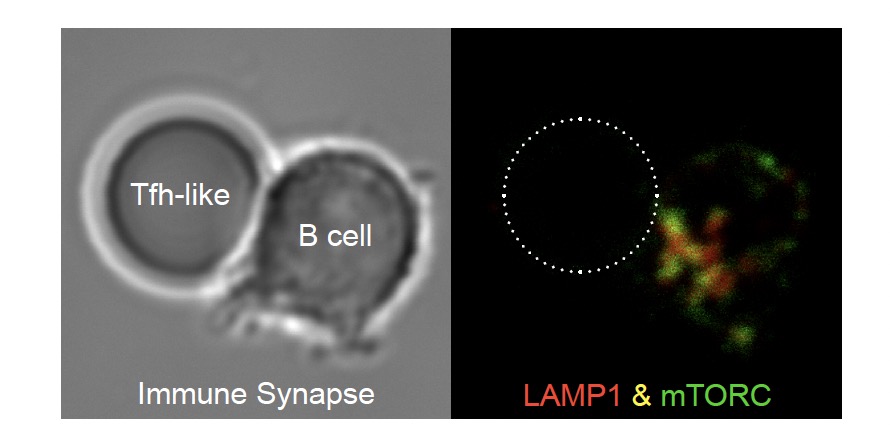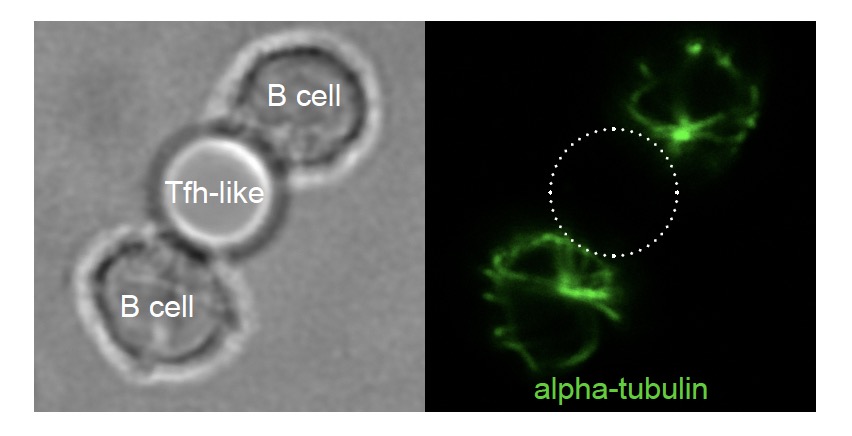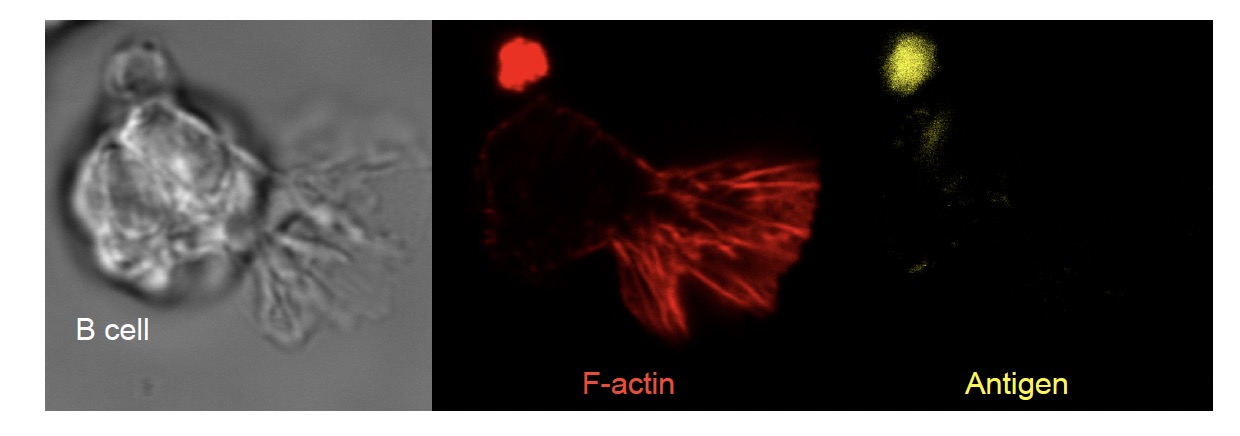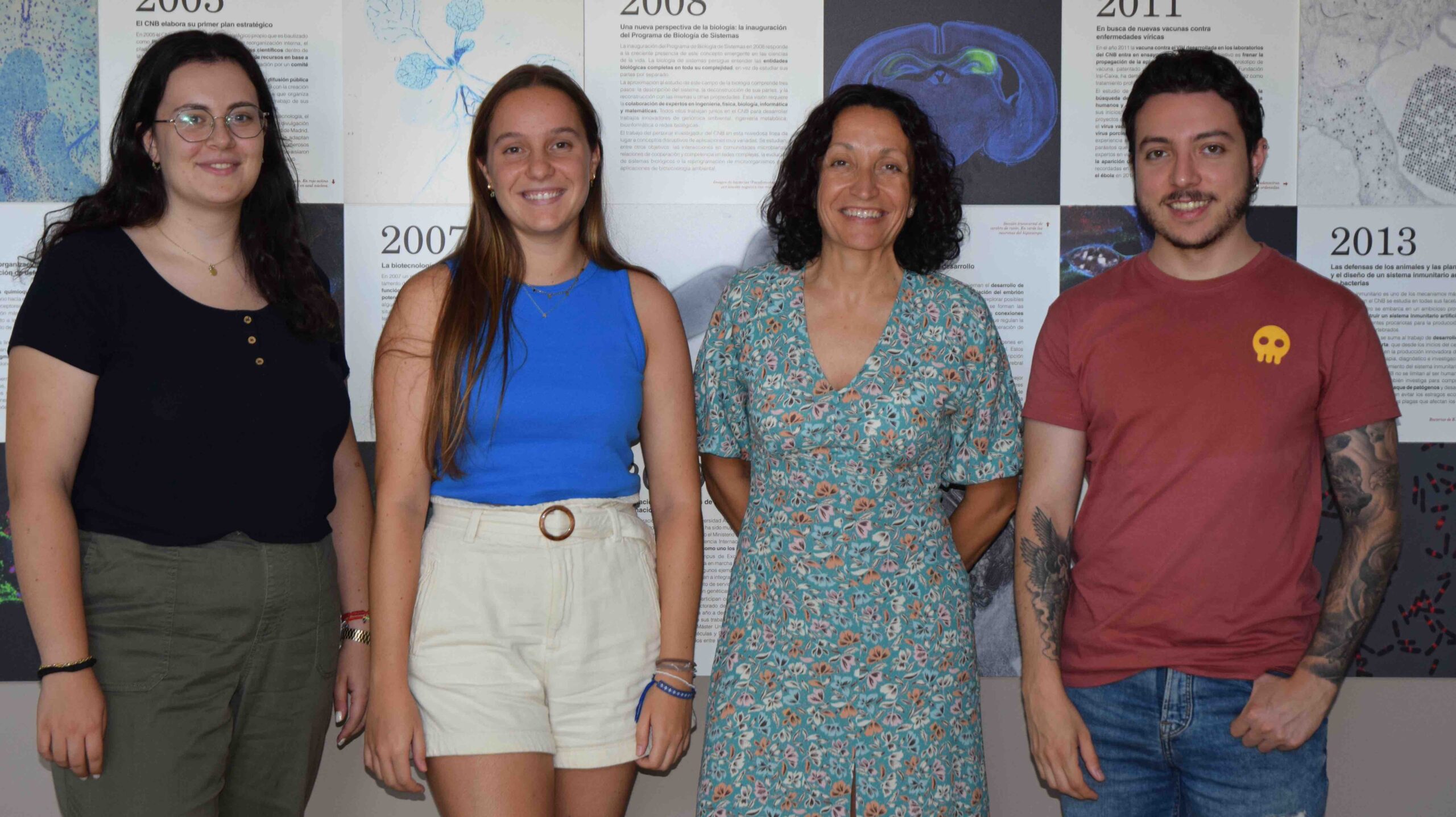B Lymphocyte Dynamics
RESEARCH GROUPS

Yolanda R. Carrasco
Group Leader
Research Summary
The recognition of specific antigen through the B cell receptor triggers the humoral immune response of B lymphocytes. This leads to the generation of Plasma Cells, which produce antibodies of high specificity for the antigen, able to neutralize it and eliminate it, and of Memory B cells that confer the long-term immunity. The complexity of the B lymphocyte response involves continuous changes in cell behavior, from high-motility states to the establishment of stable cell-to-cell interactions (immune synapse), adjustments in the mechanical cell properties (stiffness, viscoelasticity) and in cell polarity of the B lymphocyte. Mutations and functional alterations in molecules related with these events are frequently found in B lymphocyte pathologies (immunodeficiency, leukemias, lymphomas), which stress the relevance of B cell dynamics in health and disease.
Our research focuses in the understanding of the signaling networks that govern B lymphocyte behavior and response. Our investigations will aid to comprehend the mechanisms of lymphomagenesis, to optimize immunotherapeutic approaches and to foresee side-effects of drug-based treatments.
Research Lines
In the last years, our work converges in two proteins of clinical interest as therapeutic targets, Bruton’s tyrosine kinase (Btk) and Diacylglycerol-kinase-z (DGKz). Btk and DGKz have pivotal roles in B lymphocyte biology that might be considered when used as therapeutic targets.
Btk has a key role in B cell receptor signaling, promotes cell survival and proliferation, and clinical trials with inhibitors are on-going for B cell lymphoma treatment. In addition, our group and others have shown essential functions for Btk in B lymphocyte dynamics and mechano-transduction through the regulation of the actin cytoskeleton, integrin-mediated adhesion and cell polarity. The mechano-immunology is an actual term to designate how changes in the biomechanical properties of immune cells and their niches regulate the immune response. We investigate the mechano-regulatory functions of Btk and their implication in lymphomagenesis. We extend our studies to the consequences of Btk inhibition in those functions that might be behind side-effects and no-remission in the treatment of certain B cell lymphomas.
DGKz is known for diminishing antigen receptor signaling, and in consequence lymphocyte activation, through consumption of the second messenger diacylglycerol. Therapeutic targeting of DGKz with pharmacological inhibitors is nowadays an attractive strategy to fight tumor related immunosuppression. Nonetheless, our findings showed that DGKz and its product, the phosphatidic acid, are needed for a competent humoral immune response, supporting BCR-mediated immune synapse formation and the mechanical traction forces involved in antigen acquisition. We are expanding our investigations to the participation of DGKz downstream CD40 signaling, at the interface of the B cell immune synapse with CD4 T follicular helper cells. The CD40/CD40L axis is crucial for the germinal center response of B lymphocytes and the generation of long-lived Plasma Cells and memory B cells.



Publications
Group Members
Group Leader
Yolanda R Carrasco
PhD candidates
Ana Fernández Barrecheguren
Adrián Fernández Rego
Lucía Fuentes Cantos

Funding
Our research is funded by national and international institutions as indicated below. For more details, please check the general Funding Section at the CNB website.




